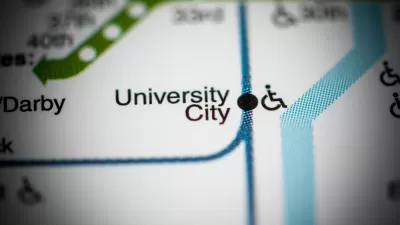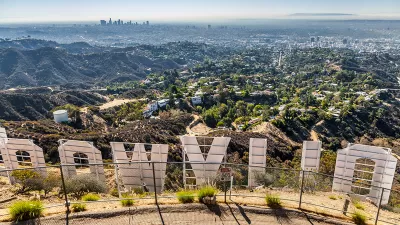As Virginia drafts new rules to govern the sale of naming rights to its highways, interchanges, and bridges, public officials want to ensure that their new "marketing technology" provides more than just a sign on the road, reports Liz Essley.
In drafting the rules for Gov. Bob McDonnell's initiative seeking to raise money for transportation projects by selling naming rights to Virginia's public infrastructure, state officials are making sure private companies get their money's worth. According to Essley, "Virginia Secretary of Transportation Sean
Connaughton is pushing to make sure that when a company like Burger King
pays to name a road, the company's name will also pop up in front of
potential customers on smartphone directional apps and Internet maps."
Speaking recently in front of the Commonwealth Transportation Board, Connaughton argued that, "The real value in naming rights isn't solely a name or a sign on a major thoroughfare. It's the thousands of
people who look through the Web and through smart apps. They may never
drive on that specific piece of highway but still can be touched by this
marketing technology."
Estimated to generate $273 million over 20 years, critics are incensed by the high vulgarity, and low economic benefit, of the plan.
"It tell us about the sad state of
transportation that we have to use gimmicks like this," said AAA
Mid-Atlantic's John Townsend. "The highway belongs to the public, and
we're building these highways with the taxpayers' money."
FULL STORY: Virginia drafting rules for highway naming

Maui's Vacation Rental Debate Turns Ugly
Verbal attacks, misinformation campaigns and fistfights plague a high-stakes debate to convert thousands of vacation rentals into long-term housing.

Planetizen Federal Action Tracker
A weekly monitor of how Trump’s orders and actions are impacting planners and planning in America.

In Urban Planning, AI Prompting Could be the New Design Thinking
Creativity has long been key to great urban design. What if we see AI as our new creative partner?

Florida Seniors Face Rising Homelessness Risk
High housing costs are pushing more seniors, many of them on a fixed income, into homelessness.

Massachusetts Budget Helps Close MBTA Budget Gap
The budget signed by Gov. Maura Healey includes $470 million in MBTA funding for the next fiscal year.

Milwaukee Launches Vision Zero Plan
Seven years after the city signed its Complete Streets Policy, the city is doubling down on its efforts to eliminate traffic deaths.
Urban Design for Planners 1: Software Tools
This six-course series explores essential urban design concepts using open source software and equips planners with the tools they need to participate fully in the urban design process.
Planning for Universal Design
Learn the tools for implementing Universal Design in planning regulations.
Gallatin County Department of Planning & Community Development
Heyer Gruel & Associates PA
JM Goldson LLC
City of Camden Redevelopment Agency
City of Astoria
Transportation Research & Education Center (TREC) at Portland State University
Jefferson Parish Government
Camden Redevelopment Agency
City of Claremont





























